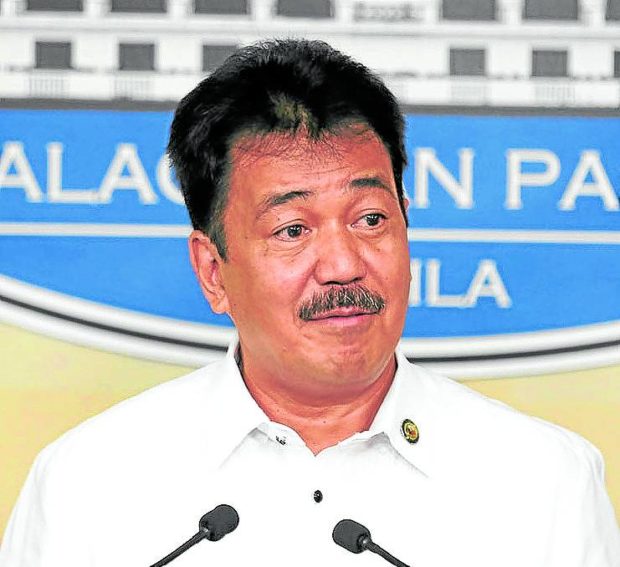
CHed Chair Prospero de Vera III. (File photo from the Philippine Daily Inquirer)
MANILA, Philippines — Higher education institutions (HEIs) in areas under Alert Level 3 may start limited in-person classes in all degree programs by Jan. 31, according to an advisory released by the Commission on Higher Education (CHEd) on Tuesday night.
CHEd Chair Prospero de Vera III said the Department of Health (DOH) had recommended the date for the second phase of the implementation of in-person classes amid the spike in COVID-19 infections in the country.
But if the conditions on the ground are “not favorable,” colleges and universities may postpone the start of their classes, De Vera said in an interview with radio dzMM on Wednesday.
He said “all the big public universities” in the National Capital Region (NCR) had decided to start their classes in February at the earliest.
He noted that certain schools in the regions of Eastern Visayas and Caraga had postponed their reopening due to the impact of Typhoon “Odette” on their facilities in December.
Authority
Universities outside Metro Manila are scheduled to meet with health experts this week to discuss the direction of the pandemic and “to guide them on what adjustments they should make,” he said.
HEIs hold the authority to decide on when to start their in-person classes depending on the health situation in their areas, consultation with the local government, and the status of faculty members and students.
The recommendation of Jan. 31 is the earliest they can reopen for face-to-face classes, De Vera said.
“What we are trying to avoid is that they would reopen on an earlier date, especially since we’re at the height of the pandemic,” he said. “Hopefully by Jan. 31, we have a better grip on the data to see if the number of COVID-19 cases would decrease.”
In accordance with previous resolutions of the Inter-Agency Task Force for the Management of Emerging Infectious Diseases, colleges and universities in areas under alert level 2 were allowed to begin face-to-face classes at any time.
No health break yet
At a virtual press briefing on Wednesday, officials of the Department of Education (DepEd) said they would wait until Jan. 15 for the DOH’s assessment of the COVID-19 situation before considering the implementation of a health break in some areas and the conduct of limited face-to-face classes in others.
“Right now, the management group and [executive committee] … cannot tell them to have a two-week vacation if the situation has vastly improved, especially in the remote places,” Education Secretary Leonor Briones said.
Certain teacher groups such as the Alliance of Concerned Teachers (ACT), along with parent associations, have been seeking a health break in view of the continuing surge in COVID-19 infections.
Speaking at a press conference on Wednesday, ACT national chair Joselyn Martinez expressed surprise at Briones’ statement that the assessment of the DOH had to be awaited before a decision on a health break could be made.
“What would grass be good for if the horse is already dead? Do we need to wait for someone to die and for [the health of] teachers to reach a critical level?” Martinez said.
‘Academic ease’
At the DepEd briefing, Education Undersecretary Diosdado San Antonio pointed out that “academic ease” had been in place since the start of classes last September, and it “has not been abandoned.”
“In public schools, depending on the situation of COVID-19, principals and superintendents must take necessary actions,” San Antonio said, adding:
“We believe that we cannot declare an academic break for the entire country since the COVID situation [varies] depending on the location.”
Briones further said public schools, along with their respective school divisions, could make the decision at their level.
“The important thing is that they inform us and they give appropriate justification,” she said.
As stated in Republic Act No. 11480, school year 2021-2022 must consist of 209 school days, inclusive of Saturdays and the five-day midyear break.
Classes in basic education officially opened on Sept. 13, 2021, and are to end on June 24.
If school authorities suspend classes, they must make the necessary adjustments in their calendar to meet the required number of school days for an academic year, San Antonio said.
55.1 percent sick
ACT appealed for a two-week health break in areas under alert level 3 after a survey found that 55.1 percent of teachers in Metro Manila were experiencing flu-like symptoms.
“Teachers and students alike are struggling to keep holding classes amid this Omicron-driven surge. Either we’re sick or we’re taking care of family members who are,” said ACT secretary general Raymond Basilio.
“It’s only humane to give all of us a break amid this outbreak, if only to allow us to recover,” he said.
The Teachers’ Dignity Coalition issued a statement on Tuesday urging the DepEd to allow a break of at least a week “to give breathing space for teachers and learners alike.”